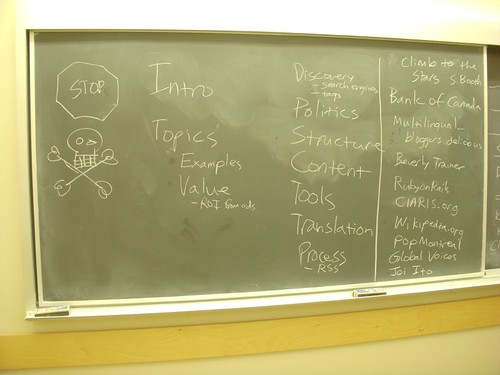 For what it is worth, I hope what happens at Community 2.0 does not STAY in Vegas. 🙂 In May I’ll be speaking about online community history and visuals (really catchy title, eh? I need a title consultant) at Community 2.0. I picked this topic because as Etienne Wenger, John Smith and I were working on our book (yes, it is AT THE EDITORS!!) we noticed this beautiful intertwining between technology development and community – how they have impacted each other. At the same time, you know I’ve become obsessed with the visual and I have been wondering how to express this intertwining in a multimedia way – maybe even almost performance-like. Talk about stepping off a cliff with no parachute. But that’s what makes it fun. Why else take a non-paying speaking gig than to learn with friends, right?
For what it is worth, I hope what happens at Community 2.0 does not STAY in Vegas. 🙂 In May I’ll be speaking about online community history and visuals (really catchy title, eh? I need a title consultant) at Community 2.0. I picked this topic because as Etienne Wenger, John Smith and I were working on our book (yes, it is AT THE EDITORS!!) we noticed this beautiful intertwining between technology development and community – how they have impacted each other. At the same time, you know I’ve become obsessed with the visual and I have been wondering how to express this intertwining in a multimedia way – maybe even almost performance-like. Talk about stepping off a cliff with no parachute. But that’s what makes it fun. Why else take a non-paying speaking gig than to learn with friends, right?
It also is rare that I speak at non-NPO/NGO/EDU events, so this will be fun to step into a different stream and see what happens. It will be a culture shockas well in that I will be coming from a week long gig in Ethiopia. So maybe a wee bit jet lagged as well. I’m coming in a day early (not worth flying home) so if anyone wants to do something low-key, let me know. I have marked Monday the 12th for play and prep.
But wait, there’s more…
I’d also like your help. But first the logistical details.
Conference Information
Now, about the conference (and of course, that discount code I can share with you as a speaker). The conference is May 12-15 at the Red Rock Resort in Las Vegas, NV. The website is www.iirusa.com/community Your discount option is a 20% discount off the standard price on my behalf. Your personal discount code to share is: SPKRM2005NW. Please pass this along to anyone you know who plans on registering. They can register by calling 888.670.8200, emailing register@iirusa.com or visiting the website www.iirusa.com/community
A Request to You
I’d like to capture a series of written, audio, drawn and/or videoed personal histories about online community. In other words, tell me a story about your participation in online communities. What was your first time? What was the experience that was transformative for you? If you’d like to play with this, email me or leave a comment. My goal is to weave together these stories along with some historical data and trends. I’ll also be capturing personal histories from people AT the conference. If you are going and would like to help with that, I’d LOVE to have you play in this sandbox with me. I’ll buy dinner for the team Monday night, May 12th as my thank you. You would need to know how to either record audio or video interviews, take a good text interview, or draw it. Seriously – even draw it.

